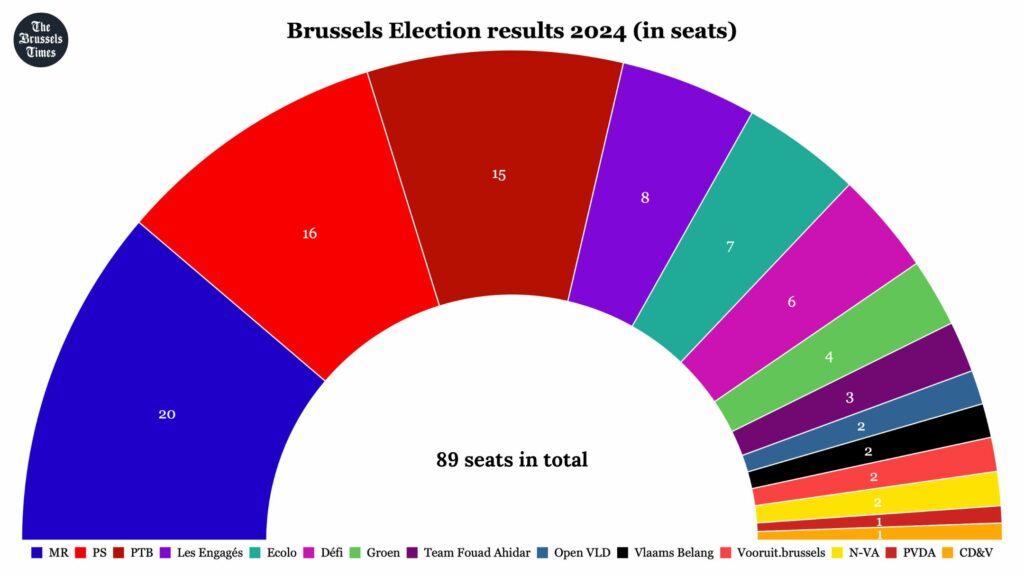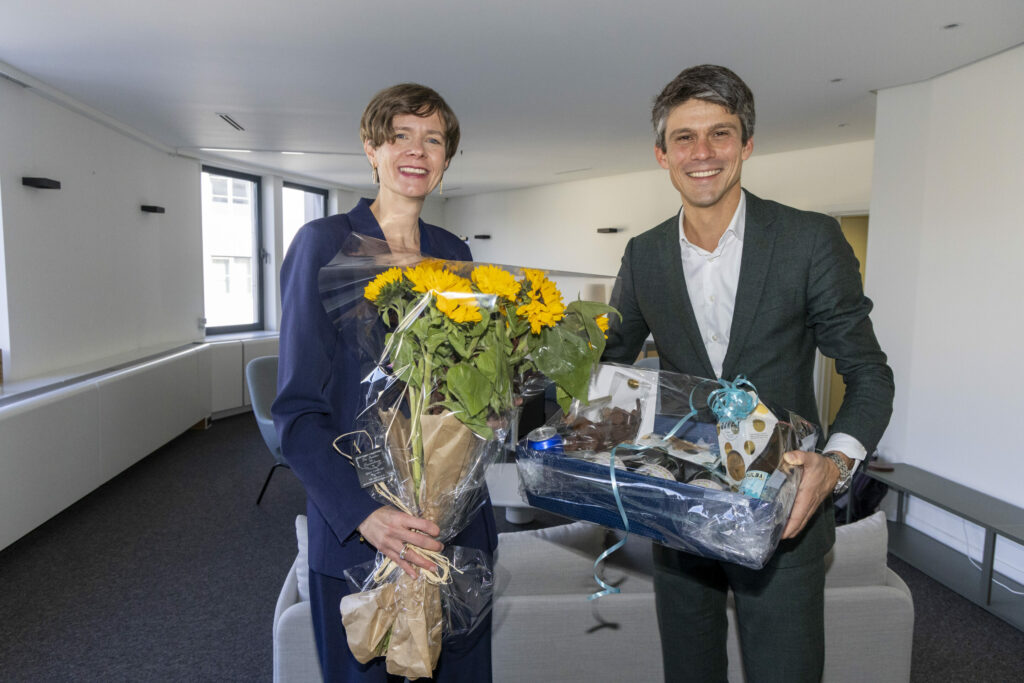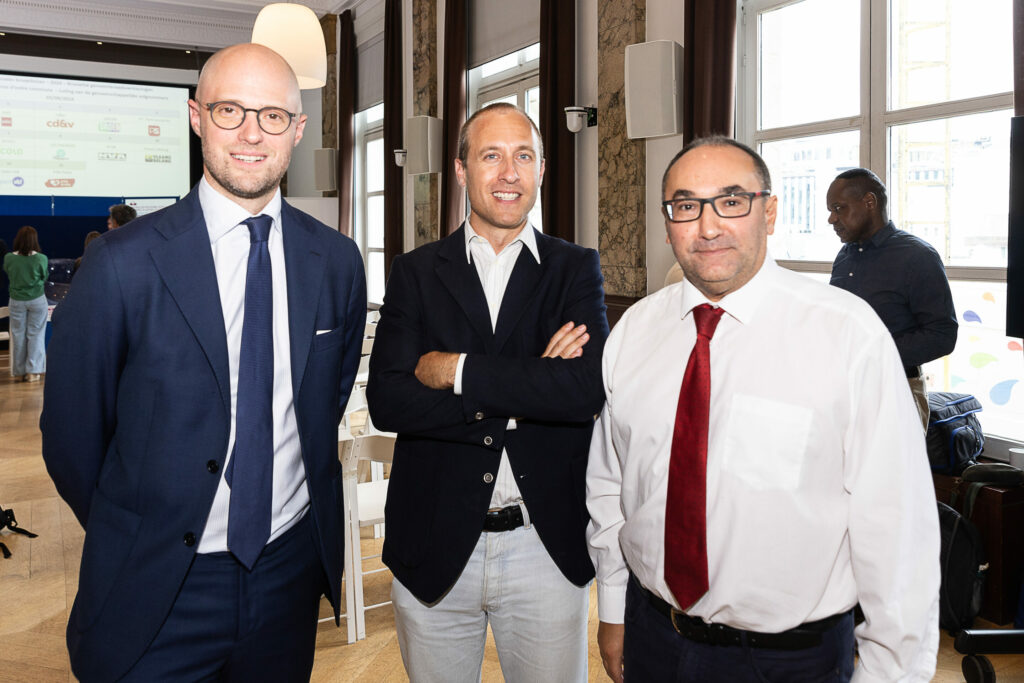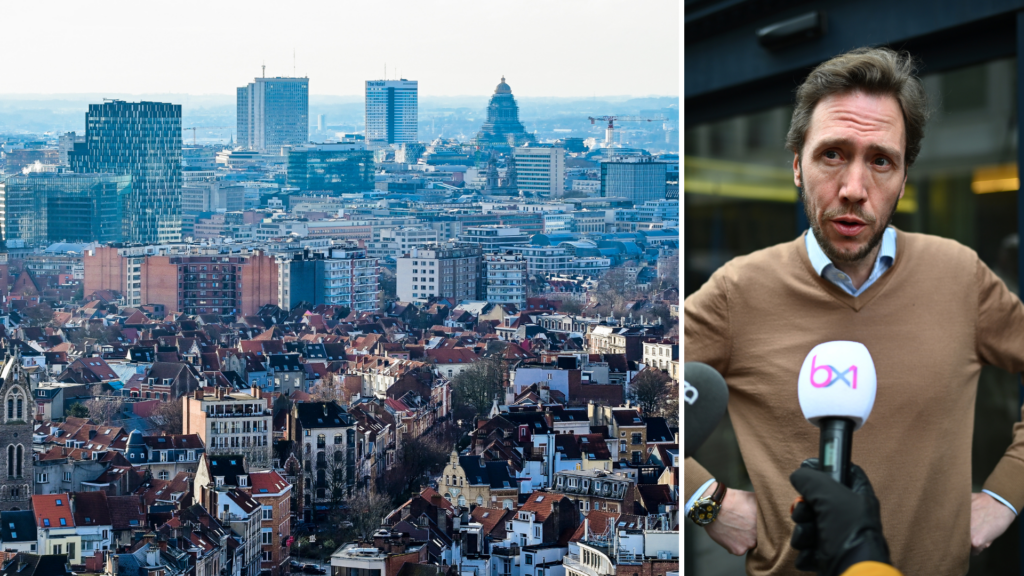The old cliché that "a week is a long time in politics" hardly does justice to the turbulence of recent months, as decades-old alliances that were the foundation of the established world order are tested to breaking point.
As the heartland of EU politics, Brussels is ground zero for diplomatic wrangling as Member States are corralled behind unifying causes. But not just an arena for European affairs, the city boasts some of the world’s most complex political architecture. As home to four of Belgium’s six governments, it is a battleground for many domestic disputes and eyed up as a territory that some Flemish factions would claim for their own rather than leave as its own autonomous region.
And for the past nine months, the Capital Region has been held hostage to an unprecedented stand-off, as negotiations to form the next regional government have been hijacked by rival parties playing political hardball. The dispute revolves around the need to form a majority in both the francophone and Dutch-speaking electoral colleges, which put together will make a governing majority for the region.
Whilst each language formation should in theory be decided independently of the other, this convention has been broken by the francophone Socialist Party (PS), which has categorically vetoed any majority on the Dutch-language side that includes the Flemish right-wingers N-VA. As the second-largest party in the region, PS is too big to be cut out of a majority and has doubled down on its opposition, much to the exasperation of the formators – the party leaders charged with forming majorities.
Thanks to an exceptionally awkward distribution of votes in the June elections, four Dutch-language parties will be needed to reach the nine-seat majority. By contrast, just three parties on the French-speaking side can secure the 37 seats needed for a majority (liberals MR, PS, and centrists Les Engagés, who collectively have 44 seats). But on the Dutch-speaking side the calculation is further complicated by the fact that there are only three ministerial positions – meaning that one of the four coalition partners must "lend" its seats and forego the decision-making influence in an eventual government.

Data: Home Affairs Ministry. Credit: The Brussels Times
Step in Open Vld: the Flemish liberals and home party of former Prime Minister Alexander De Croo. The party came forward as the crucial partner that would add its two MPs to the majority without taking a ministerial role. Alongside Groen (four seats), Vooruit (two seats), and N-VA (two seats), these four would comprise the Dutch majority.
This act of self-sacrifice elevated Open Vld to a position of unlikely prominence, after taking a beating in the federal elections and sliding towards irrelevance. On top of this, Open Vld has a tough-talking new leader in Brussels: Frédéric De Gucht, who has put the party at the centre of the debate and led the fight against PS, which it accuses of foul play for rejecting the coalition put forward on the Dutch-speaking side.
A man of change
In conversation with The Brussels Times, De Gucht acknowledged that "My style of communication is very direct." Born in Flanders into a political family (his father Karel De Gucht was European Commissioner for Trade), he initially resisted the call to public service. He outlines an earlier career in marine infrastructure, which took him around the world, including a stint in New York. Today he has a glazing business in Wallonia. Perfectly trilingual, De Gucht has called Brussels home for 25 years and has two children with a Spanish partner.
"I promised myself never to go into politics. But after a while I found myself becoming cynical and decided I should try to change things. I've given myself 12 years, if I can't change something in that time that's enough." He imagines an alternative political system, where elected officials must have a "detox" period after two terms in executive office. This would overcome the problem of politicians who are too focused on winning the next election rather than changing things.
"Politics is often getting elected on popular ideas then having to implement unpopular reforms." For this reason, politicians are reluctant to make tough decisions, or even acknowledge them. De Gucht is unrepentant on this front: "We are heading straight into the wall. Brussels' finances are totally unsustainable," he warns. Addressing the structural deficit will require uncomfortable choices – put bluntly, austerity.
There's no getting around it, the reforms the next government will be forced to implement will be unpopular: "It's not going to be fun. We're going to have to cut costs and probably have to look for extra income." Well aware of the scale of the challenge, De Gucht makes no attempt to spin it in a positive light.
The region's total debt is almost €15 billion – a colossal figure when set beside the annual budget of around €7 billion. The budget deficit has grown to around €1.59 billion in 2025 (unless there's a new government to intervene). Small surprise that Brussels' credit rating has been downgraded, making it more expensive to borrow and pay the interest on debt.

Flemish Minister for Brussels Cieltje Van Achter (N-VA) and Flemish Minister for Brussels Affairs Benjamin Dalle (CD&V). But which will end up in the Brussels government? Credit: Belga
These are important numbers that Open Vld is perhaps more mindful of than other groups. It is the party's own Sven Gatz who is the outgoing Brussels Minister of Finance and Budget. De Gucht positions himself as the voice of fiscal responsibility where others descend into communitarian issues, such as ritual slaughter: "Brussels has a big migrant Muslim community so we allow it. It's crazy, but you win elections on it."
This goes a long way in explaining why Open Vld insists on bringing N-VA – the party controlling the federal and Flemish governments – into the majority.
But with PS arch enemies of N-VA, the notion of being forced to partner with the Flemish nationalists in the Brussels government is unconscionable. PS also suffered a humiliating defeat in elections at the federal level and in Wallonia. The socialists are taking a term in opposition to redefine their political direction. Only in the Capital Region do they keep a foothold in power – a position they will assume only on their own terms.
No more compromis à la belge?
De Gucht describes a new era of politics that does away with the compromise-based conventions that previously shaped decision-making in Belgium. "Today, you have to make war before you make peace."
It's a bellicose battle for attention championed by the US President that puts opponents on the back foot as you immediately drive to the extreme. "Nowadays you need to start with an idea that is polarising and then you put the nuances in," De Gucht explains. "It used to be that parties would try to persuade people with details but now you first say 'Everything is black' before pointing out that there are different shades of grey."
This modus operandi is radically different from the Belgian mode, which seeks a middle ground that can accommodate multiple partners. Trump's negotiation technique is based on the premise that there's a winner and a loser. De Gucht cites Trump's playbook – The Art of the Deal – which highlights that it's sometimes more important that your opponent loses than what you win.
He likens this approach to some parties in Brussels who say "I'm not here to win because there's not much to win, but I want to make sure that somebody else loses."

Christophe De Beukelaer (Les Engagés) stands between David Leisterh (MR, left) and Ahmed Laaouej (PS, right), September 2024. Credit: Belga
What the pot calls the kettle...
When De Gucht spoke to The Brussels Times, the coalition with N-VA was the only serious proposal. However, an alternative composition on the Dutch-language side has since been put forward as Christian Democrats CD&V have now come forward as a willing participant in government, their one seat enough to scrape a majority and, most importantly, to replace N-VA, which PS objects so strongly to.
It's a proposition that would finally deliver a government and has been warmly welcomed by PS. But De Gucht has so far held out, unwilling to let go of N-VA and accusing the socialists of "dynamiting" an agreement so hard-won by the Flemish parties.
His intransigence has found little support among mediators who now portray Open Vld as the party holding up procedures. In a radio interview on Tuesday morning, Dutch-language formator Elke Van den Brandt (Groen) put the ball firmly in De Gucht's court, unsympathetic to his assessment of PS as the root of the problems and suggesting he untangle the deadlock instead.
It's an invitation that De Gucht has so far left unanswered, though Brussels' deficit grows by roughly €4.35 million per day. How long this can go on is still unclear. But with all eyes on Open Vld and PS, Brussels is left wondering who will blink first.

